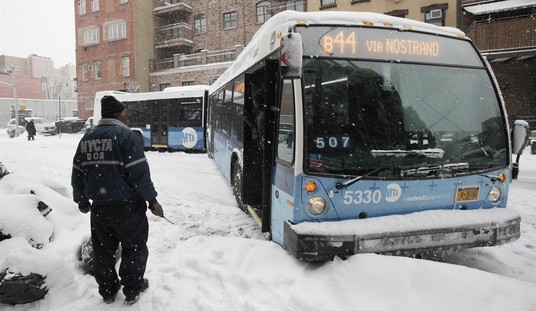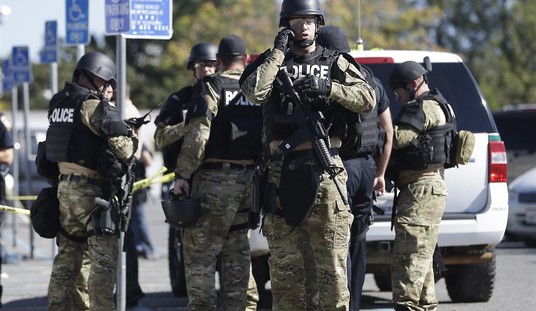Iowa Governor Kim Reynolds signed into law a bill that would criminalize those who try to enter the state after having been deported or denied entry into the United States. The law mirrors legislation passed in Texas aimed at addressing the ongoing border crisis.
The Supreme Court has placed Texas’ law on hold as the matter is litigated in court. These measures highlight the severity of the situation at the southern border, as states grapple with the constant influx of asylum seekers and illegal immigrants.
Reynolds signed Senate File 2340 Wednesday, making it a crime to attempt to enter Iowa after being previously deported or barred from entering the United States. It takes effect July 1.
"The Biden administration has failed to enforce our nation’s immigration laws, putting the protection and safety of Iowans at risk," Reynolds said in a statement announcing the law signing. "Those who come into our country illegally have broken the law, yet Biden refuses to deport them. This bill gives Iowa law enforcement the power to do what he is unwilling to do: enforce immigration laws already on the books."
Biden has asked Congress to pass a bipartisan federal immigration law that would beef up border spending and give him more authority to combat illegal immigration, but Republicans rejected it after former President Donald Trump condemned it. Reynolds agreed, saying "we don't need a new law."
Iowa has sent a number of Department of Public Safety officers and National Guard soldiers to the border to support Texas’ efforts to curb illegal immigration. However, the legislation has been met with opposition coming from pro-immigration groups.
Immigrants rights groups have protested the Iowa legislation at the Capitol this year and vowed to fight it through legal actions, strikes and rallies.
Iowa Migrant Movement for Justice said in a statement that "welcoming immigrants and refugees is the definition of what 'Iowa Nice' should be."
"Iowa politicians moved this ridiculous stunt forward in an election year in order to perpetuate partisan campaign rhetoric, drive fear in immigrant communities and mobilize voters using fear and anti-immigrant sentiment," the group said. "Immigrants’ rights organizations are ready to fight back and work to block this unconstitutional law from going into effect. We know that we all belong here, Iowa is home, and we will stand together as workers, families and allies to defend each other."
If the law is allowed to go into effect, it is not certain how it will be enforced. Some members of law enforcement indicated that they lack the resources to enforce the new legislation.
After the Legislature passed the bill, Des Moines Police Chief Dana Wingert told The Associated Press in an email in March that immigration status does not factor into the department’s work to keep the community safe. He said the force is “not equipped, funded or staffed” to take on responsibilities that are the federal government’s.
“Simply stated, not only do we not have the resources to assume this additional task, we don’t even have the ability to perform this function,” Wingert said.
Shawn Ireland, president of the Iowa State Sheriffs and Deputies Association and a deputy sheriff in Linn County, also said in a March email that law enforcement officials would have to consult with county attorneys for guidance on implementation and enforcement.
The law specifically targets those who reenter the state after having been previously deported by federal authorities and those who were denied admission. Those violating the measure could be charged with an aggravated misdemeanor for general offenses. Those who have multiple convictions for multiple violations of the law could face Class “D” felony charges or Class “C” for reentering the state after being convicted of a felony.
Under the legislation, law enforcement would be barred from making arrests on school premises, churches, healthcare facilities, or places offering services to survivors of sexual assault.














Join the conversation as a VIP Member